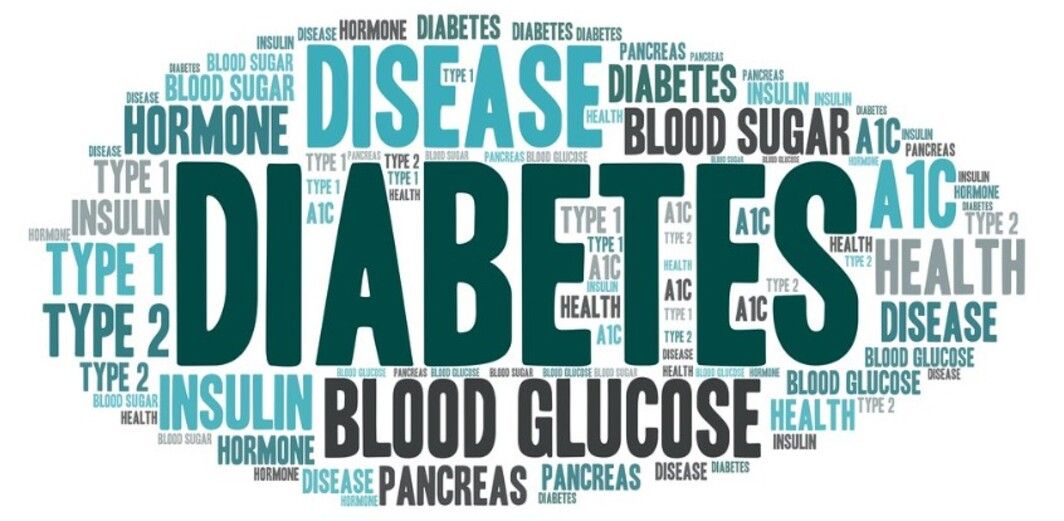Diabetes Management
Can Eating Non-Vegetarian Food Cause Diabetes?
2 min read
By Apollo 24|7, Published on - 05 July 2024
Share this article
0
0 like
.jpg?tr=q-80)
Is your non-vegetarian diet to blame for your diabetes? The answer is not as straightforward as you might expect. While a non-vegetarian diet does not directly cause diabetes, certain dietary patterns common in non-vegetarian diets could increase your risk of developing type 2 diabetes.
Understanding the Role of Diet
Non-vegetarian diets can include higher amounts of processed or red meat and saturated fats, which may increase the risk of developing type 2 diabetes if consumed excessively. However, incorporating lean meats, such as chicken and fish, can be part of a healthy diet. These sources of protein are lower in saturated fats and can support a balanced diet. In contrast, vegetarian diets rich in whole plant foods—such as fruits, vegetables, whole grains, legumes, and nuts—are also beneficial for preventing and managing diabetes. These diets tend to be lower in saturated fats and higher in fibre and antioxidants, which help improve glycemic control and reduce inflammation.
Balanced Nutrition is Key
However, it would be an oversimplification to label vegetarian diets as inherently 'healthy' and non-vegetarian diets as 'unhealthy'. Vegetarian diets that are heavy on refined carbohydrates, added sugars, and unhealthy fats may not provide the same protective effects against diabetes. Similarly, non-vegetarian diets that emphasize lean meats, fish, and nutrient-dense foods can be beneficial for health. What matters most is a balanced, nutrient-dense diet that includes a variety of whole foods, such as fruits, vegetables, whole grains, lean proteins, and healthy fats, regardless of whether you consume animal products. This approach ensures adequate intake of essential nutrients and supports overall metabolic health.
Lifestyle Factors
In addition to diet, leading a healthy lifestyle with regular exercise also plays a crucial role in preventing and managing diabetes. Genetic factors and overall health are other significant contributors to your risk of developing the condition.
While certain dietary choices associated with a non-vegetarian diet can increase the risk of diabetes, eating meat itself does not directly cause the condition. Your focus should be on leading a balanced life with a nutrient-rich diet and regular exercise.
Making lifestyle changes can be challenging but you don't have to do it alone. Consider enrolling in the Apollo Super 6 programme, designed by Apollo doctors in India. It has shown success in reducing HbA1c levels, weight, waist circumference, and blood sugar levels along with enhancing active lifestyle and sleep quality.
Diabetes Management
Consult Top Diabetologists
View AllLeave Comment
Recommended for you

Diabetes Management
Pineapples & Diabetes: Is it Safe for Diabetics?
Pineapples, rich in nutrients, may impact blood sugar due to their carbs. With a medium GI of 59-66, moderation and pairing with protein are key. Opt for raw or grilled forms with lower GI, while canned or juice has higher values. Portion control and informed choices let diabetics enjoy pineapple while managing health.

Diabetes Management
Diabetes Crisis in India: Regional Insights
Alarming: 101 million Indians grapple with diabetes. Prediabetes affects 136 million of the urban population. Top 10 worst-affected states include Goa - 26.4%, Puducherry - 26.3%, Kerala - 25.5%, Chandigarh - 20.4%, Delhi - 17.8%, Tamil Nadu - 14.4%, West Bengal - 13.7%, Sikkim - 12.8%, Punjab - 12.7%, Haryana - 12.4 Based on the Lancet study, Diabetes rates are higher in southern and northern India, but lower in central and northeastern regions.
.jpg?tr=q-80)
Diabetes Management
Pomegranates and Diabetes: The Sweet Side of Diabetes Management
Pondering on whether pomegranates are good for managing diabetes? Yes, they are! With a low glycaemic index and rich nutrient content, pomegranates can be a beneficial addition to a diabetes-friendly diet. However, managing diabetes is not about one food item alone – it requires a holistic approach. So, join hands with the Apollo Super 6 programme for thorough assistance in your journey towards effective diabetes management.
Subscribe
Sign up for our free Health Library Daily Newsletter
Get doctor-approved health tips, news, and more.
Visual Stories

8 Fruits That are Incredibly Healthy for Diabetes
Tap to continue exploring
Recommended for you

Diabetes Management
Pineapples & Diabetes: Is it Safe for Diabetics?
Pineapples, rich in nutrients, may impact blood sugar due to their carbs. With a medium GI of 59-66, moderation and pairing with protein are key. Opt for raw or grilled forms with lower GI, while canned or juice has higher values. Portion control and informed choices let diabetics enjoy pineapple while managing health.

Diabetes Management
Diabetes Crisis in India: Regional Insights
Alarming: 101 million Indians grapple with diabetes. Prediabetes affects 136 million of the urban population. Top 10 worst-affected states include Goa - 26.4%, Puducherry - 26.3%, Kerala - 25.5%, Chandigarh - 20.4%, Delhi - 17.8%, Tamil Nadu - 14.4%, West Bengal - 13.7%, Sikkim - 12.8%, Punjab - 12.7%, Haryana - 12.4 Based on the Lancet study, Diabetes rates are higher in southern and northern India, but lower in central and northeastern regions.
.jpg?tr=q-80)
Diabetes Management
Pomegranates and Diabetes: The Sweet Side of Diabetes Management
Pondering on whether pomegranates are good for managing diabetes? Yes, they are! With a low glycaemic index and rich nutrient content, pomegranates can be a beneficial addition to a diabetes-friendly diet. However, managing diabetes is not about one food item alone – it requires a holistic approach. So, join hands with the Apollo Super 6 programme for thorough assistance in your journey towards effective diabetes management.
